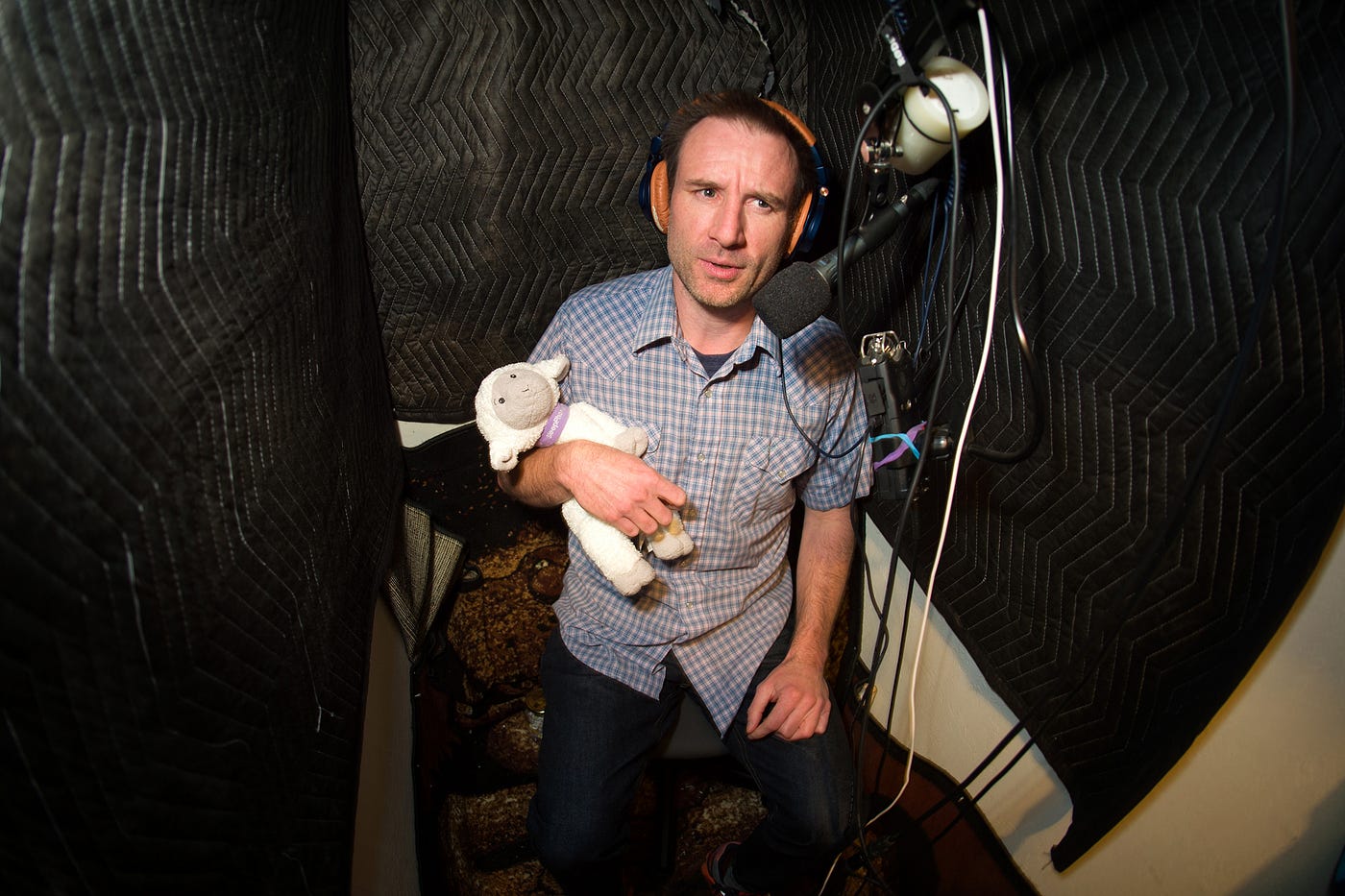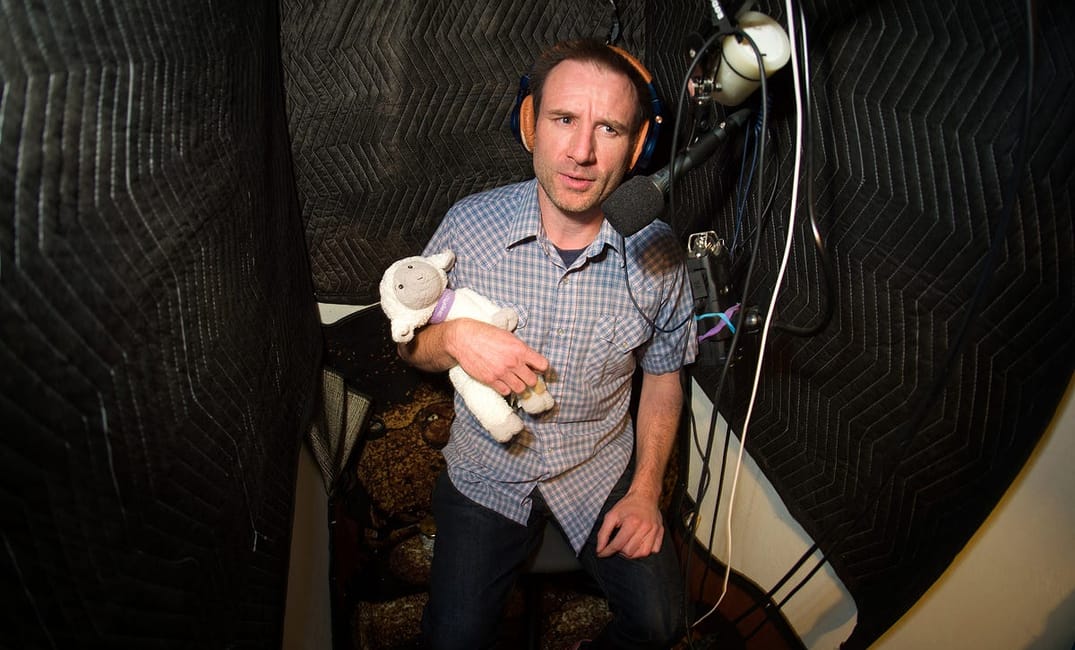
Insomnia has had its icy hold on most of us at least once or twice in our lives. Maybe you drank a cup of coffee too late in the evening.Or perhaps you just couldn’t stop binge-watching the latest season of Stranger Things. Whatever the reason, whether it’s Demogorgons, apocalyptic anxieties or a stressful day at work, sleep is just not happening. You try listening to silly ambient loops and white-noise apps. You even get out of bed and read on the couch. But no matter what you do, it almost seems like the more you try to fall asleep, the more elusive it becomes.
If you’re lucky, it’s a once-in-a-while thing. But for Linda Hogoboom, it was a sleepy reality that had plagued her since she was a girl. And as an adult, it didn’t get any better. It was always a struggle. She tried using lavender and leaving the TV on, but nothing seemed to help. “All my life, no matter how tired I was, no matter how long a day or how much I wanted to actually sleep, I would always just lie there, unable to quiet my mind,” said Hogoboom, who lives in New Jersey.
That is, until she discovered Sleep with Me, a podcast hosted by East Bay resident Drew Ackerman. Since Hogoboom discovered the podcast last year, she can count the times she wasn’t able to fall asleep on one hand.
A headline in a “Washington Post” article about Ackerman reads, “This podcast is so boring, it puts people to sleep. And that’s why insomniacs love it.”
“Now I have confidence that when I lie down, I’ll fall asleep,” said Hogoboom. “And that is after a lifetime, 47 years, through childhood and all the ebbs and flows of adulthood — a lifetime where I was resigned that this was just how it was, how I was.”
It’s easy to make jokes about Drew Ackerman’s podcast. A headline in a Washington Post article about Ackerman reads, “This podcast is so boring, it puts people to sleep. And that’s why insomniacs love it.” Not that the writer was entirely wrong: Ackerman’s voice is hardly riveting, somewhere between the lull of a sleepy professor and a mildly excited librarian (which was actually his previous occupation). But to think that Ackerman — his listeners know him as “Dearest Scooter” — is merely a podcast version of that boring teacher in Ferris Bueller’s Day Off is to grossly misunderstand his charm.
Sure, insomniacs like Ackerman because of his surreal, funny, low-stakes stories. But they love him because he understands their struggle.
Since its quiet beginnings, Ackerman’s podcast has grown from reaching a couple of listeners to lulling millions of loyal listeners to sleep each month.
“A lot of people who have long-term sleep issues get tired of people labeling it as a problem, like, ‘Oh, this is a problem you should have fixed by now. This is something that is behavioral. The reason you can’t sleep is because you’re not doing it right,’ Ackerman said, mimicking people who don’t understand insomnia. “Are you fucking kidding me? If I could do it right, I’d be asleep.”
For people with PTSD, chronic-pain sufferers, insomniacs and your more casual night owls, Ackerman serves as their literal sandman, helping them transition to the land of dreaming.
Since its quiet beginnings, Ackerman’s podcast has grown from reaching a couple of listeners to lulling millions of loyal listeners to sleep each month, according to listener reports he sent to The Bold Italic. They range the globe, from coal-train operators in the Australian Outback to submarine crew members deep in the ocean. For people with PTSD, chronic-pain sufferers, insomniacs and your more casual night owls, Ackerman serves as their literal sandman, helping them transition to the land of dreaming.
He does this by telling what he calls “bedtime stories,” meandering tales that relish in tangents and non sequiturs. He does all the voices of the characters (though they all sound like him), and his stories contain no music or sound effects. In one episode, he attempts to recount the movie Home Alone from memory. At the 39-minute mark, he is just getting to the part where Kevin realizes he made his family disappear, though that plot point comes well before that in that actual film. Other times, he creates his own works of episodic fiction, such as his ridiculous series, “As the North Pole Turns,” which he describes as a Christmas soap opera set in the 1950s.
“It’s not a science; it’s more of a tightrope…like, is this going to be interesting enough where people don’t think about the other stuff?” said Ackerman. “But not so engaging so they’re like, ‘Oh, I’ve gotta hear how this ends,’” said Ackerman.
Like his listeners, the host of the podcast has his own sleep issues, which go all the way back to childhood. As a kid of the ’80s growing up in Syracuse, New York, he was always the last of his brothers to fall asleep.
Sleep expert Dr. David M. Claman has never heard of Sleep with Me. But as long as people can avoid reading texts or emails while they listen, he’s happy people have found a drug-free approach to insomnia such as Ackerman’s podcast.
“One of the key options is to find something at bedtime that relaxes you and takes you away from the stress and tension of the day that you’re still focused on,” said Claman, who is the director of the UCSF Sleep Disorders Center. “And the idea that a slow, rambling story, in a sort of monotone that isn’t too exciting and dramatic…the idea that stories along those lines would be helpful makes perfect sense.”
As the saying goes, it takes one to know one. Like his listeners, the host of the podcast has his own sleep issues, which go all the way back to childhood. As a kid of the ’80s growing up in Syracuse, New York, he was always the last of his brothers to fall asleep.
“I would spend all night worrying, like, ‘Oh God, I don’t want to go to school tomorrow. I’m going to get in trouble. It’s going to be the worst day of my life,” remembered Ackerman.
Amid his sleepless anxiety, listening to the radio was the only thing that helped. A comedy program called “The Doctor Demento Show” was his favorite, planting the seed for Sleep with Me decades before its inception. “It never put me to sleep, but for those two hours that it was on, I was gone — I was in that world,” said Ackerman, now 43. “I never forgot those two things— the misery of not being able to sleep and the show just, like, sweeping me away. I think it sat in my subconscious or something.”
As an adult, his sleep issues didn’t get any better. He tried listening to guided meditations, but he found their tone to be too serious. And they would eventually end, leaving him awake and lonely. He wanted to make something that would help people like him, something silly and lighthearted with ever-evolving content.
So in 2013, he did. In between taking care of his daughter and working as a part-time librarian, he started recording episodes out of a makeshift studio that he built in his closet. With just enough room for a chair and some sound equipment—“It’s not that much wider than clothes on a hanger” — Ackerman still records there today, his clothes packed tightly behind him.
“If I stretch my arm all the way out, I can touch my winter coats,” said Ackerman.
At first, the show wasn’t without its hiccups.
“People would start giving me feedback, like, ‘Oh, you talked about snakes, and it woke me up,’ and I’d be like, ‘OK…no more talking about snakes,” said Ackerman with a laugh.
People weren’t just listening to him to fall asleep. For some of his more restless listeners, that just wasn’t an option. They were listening because they didn’t want to be alone in what Ackerman calls the “Deep Dark Night.”
He also learned to always finish his stories, even if he thought all his listeners were asleep. One time, toward the end of an episode, he jokingly said, “No one is probably listening to this anyway.” Afterward, he received a message from a listener who felt silly and alone at the idea that she was the only one still listening at the end. He realized something that day. People weren’t just listening to him to fall asleep. For some of his more restless listeners, that just wasn’t an option. They were listening because they didn’t want to be alone in what Ackerman calls the “Deep Dark Night.”
“I get a lot of feedback of like, ‘Why do you put so much work into it or go all the way to the end?’” said Ackerman. “Well, for the people who were just like me as a kid, they’re lying there with no hope of sleep, and I want to help them escape too.”
Though I didn’t mention it earlier in this article, I’m one of those sleepless people. For years, I would wake up in the middle of the night, sometimes from nightmares, and other times for no reason at all.
A quote about insomnia that is floating around insomnia forums and Pinterest boards comes to mind. It reads, “A Japanese legend says that if you can’t sleep at night, it’s because you’re awake in someone else’s dream.” Though I could find no trace of this supposed Japanese legend, it reminded me of Ackerman’s surreal podcast. Before Sleep with Me existed, insomniacs like me had to face the middle of the night alone. But now, when I’m having a restless night, I can listen to Ackerman’s tales, and feel comforted that I’m not the only one.
Matt St. John is a freelance writer and artist living in San Francisco. He has written for many publications, including Vice, El Pais and the East Bay Express. Follow him on Twitter, and check out more of his work here.







